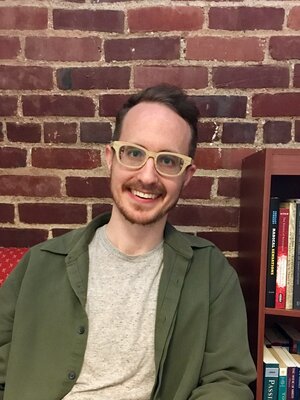
Dissertation: “Feeling Singular: Masculinity and Desire in the Early Republic, 1786–1822”
Certified Spring 2017
Intellectually, I’m intrigued by the cultural logics of failure; specifically, how social conventions seek to elide the messiness and disarray of everyday life. My dissertation, “Feeling Singular: Masculinity and Desire in the Early Republic, 1786–1822,” centers on this problem through examining the paradoxical nature of masculine self-promotion in the early United States. Before the nineteenth-century valorization of self-reliance, men who appeared too unduly attached to their own singularity were perceived as outsiders. Bringing these figures into the center of early national culture, my project draws on a queer studies approach that uncovers how their fraught private desires shaped a public masculinity increasingly at odds with the disinterested norms of republican public culture. To that end, I assemble an archive of understudied life writings by men who sought to make themselves into important citizens but failed to attain the representative status of a Benjamin Franklin or a George Washington. These figures include a struggling working-class mechanic (John Fitch, 1743–1798), an itinerant peddler and preacher (Jonathan Plummer, 1761–1819), an emancipated slave and blind Revolutionary War veteran (Jeffrey Brace, 1742–1827), and finally a reclusive stonecutter known as “the Pennsylvania Hermit” (William “Amos” Wilson, 1762–1821). Despite leaving behind copious manuscripts and printed autobiographies, they dwindled instead into cultural insignificance, rendered visible only as leftover archival remnants, the detritus of various forms of failure.